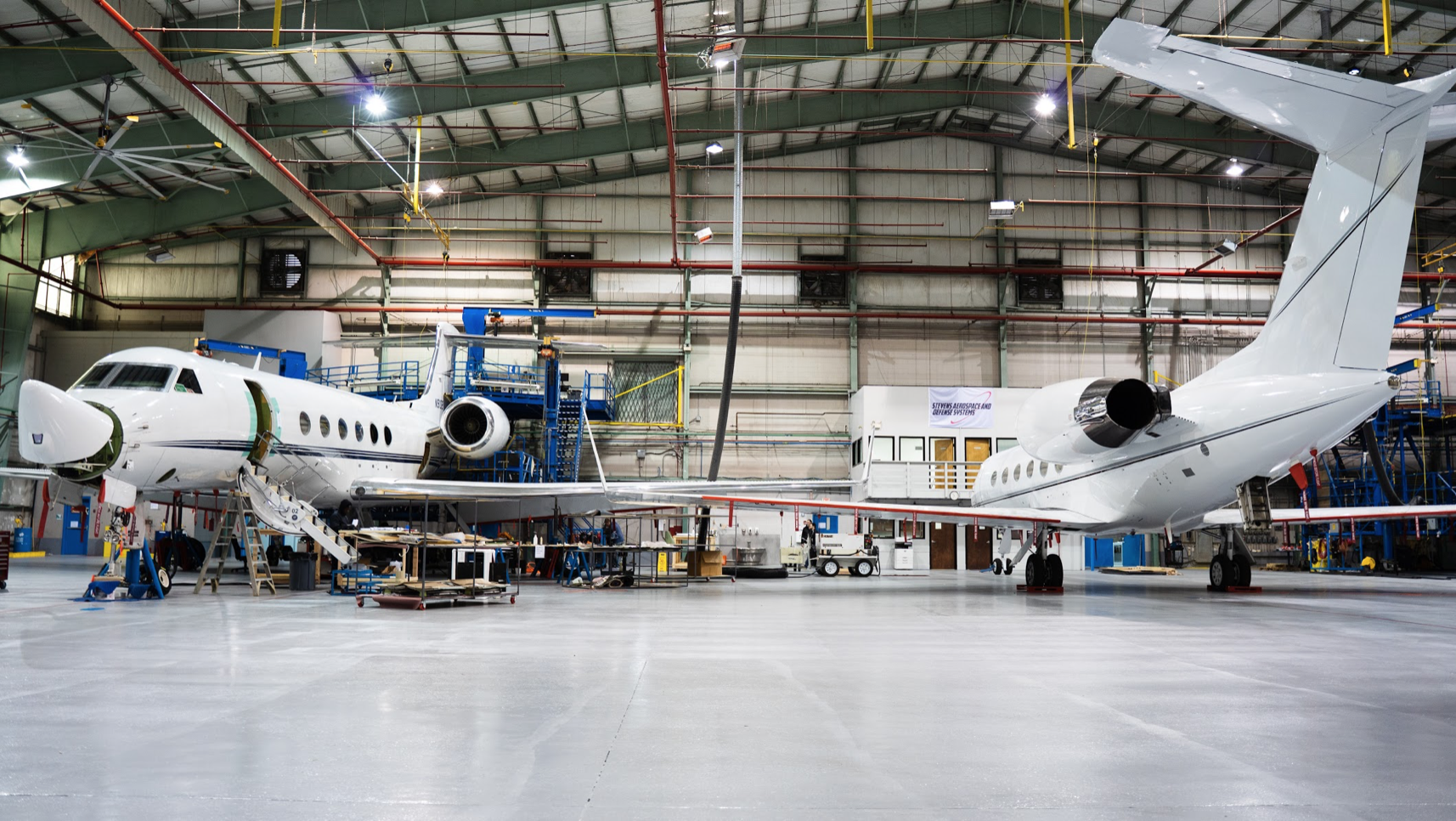Atmanirbhar Bharat! the term is almost synonymous with India since the government by Mr. Narendra Modi introduced this term a few years back. Since then, that government is encouraging industries to manufacture and sell the products in India at par with the Western world. Picking up the cue many industrialists came forward and established their businesses to transform India from a developing to a developed nation. One of the sectors, considered to be the most neglected sector by the government was the aerospace MRO sector. To everyone’s surprise, since the last couple of years, the Indian government has started taking special efforts to uplift this sector by announcing schemes and perks for the benefit of small, independent MROs and repair shops across the country. This is attracting the attention of several foreign MROs seeking investment opportunities in India.
Last year, in the annual budget, the government had promised to make India a global MRO hub and true to its promise, the government has already started taking steps towards this goal. The industry players had long been demanding the government reduce the GST rate on aircraft MRO services, and the government responded to the popular industry demand by slashing the GST on aerospace MRO from 18 percent to 5 percent. This move by the GST council is supposed to help Indian MRO service providers invest more in infrastructure and capabilities due to the level playing field with foreign companies.
This will also accelerate the pace of setting up MRO services in India. The aviation ministry is trying to attract private investment for MROs at 8 airports. All these measures have received appreciation and positive responses from the MRO industry stalwarts.
“We would like to acknowledge and congratulate the civil aviation ministry’s forward-looking policy measures that are advancing India’s MRO ambitions. To develop India as a global aviation hub, we need to think of entire eco-systems that take advantage of India’s inherent strengths, competencies, and talent. For the MRO and aviation ecosystem to grow, we need to focus on building scale that encourages OEMs to invest, use investments in civil and defense commonality to our advantage, further develop our engineering talent, and finally synergize policy-making with on-ground implementation,” commented Ashmita Sethi, president & country head, Pratt & Whitney India.
Ashok Gopinath, CEO at GMR Aero Technic Limited, Hyderabad said, “These moves by the MoCA are in the right direction and the benefits will start becoming visible in a couple of years from now keeping pace with expected growth in the aviation industry in India.”
Civil Aviation Minister Jyotiradiya Scindia, while speaking on India’s new policy for aircraft MRO services in September last year said that the ministry is planning to implement an allotment process for MROs via open tender and that it will provide allotment for 30 years to provide a stable ecosystem for investors. Apart from this, the government has also taken the issue of reduction of Value Added Tax (VAT) on Aviation Turbine Fuel (ATF) with the states and the UTs.
“GST reduced on Maintenance services for aircraft and aircraft components appreciate that, but what about duties on Tools and Consumables and ease of customs clearance process for Aircraft parts, these are major points for maintaining the aircraft. Also, to boost up the Indian aviation market government should come up with some rebate on import customs duties for private category aircraft and reduce the Airport infrastructure cost like Hangar charges,” said Shobhit Shrivastava, head of Aviation at APCO infra.
Dr. Praveen Srivastava, CEO of AeroChamp Aviation Pvt Ltd commented, “The reduction of GST will definitely boost the MRO industry as the operators will now see the Indian MROs to be more competitive than flying their aircraft outside for maintenance needs. As it is since the last couple of years, domestic aircraft were not flying outside“.
“During the maintenance, there are two main components, labor, and spare parts supply, the spare parts supply ecosystem in India has not been nurtured which has a definite impact on the MRO industry. We need to develop independent component suppliers in India. As of now, there is no clarity on this, as the MROs import the spares, they are charged a low customs duty compared to a non-MRO or a trader. This is a grey area that needs to be addressed by the ministry. Secondly, there are not many component repair shops in India both for Civil as well as defense, so just a reduction of GST won’t lead to an increase in investments or encourage entrepreneurs or small MSMEs to set up shops, until there is an open discussion on this between the MoCA and the DGCA, Also, the smaller repair shops get their share of recognition and their contribution in the MRO industry,” Dr. Srivastava continued.
“Currently, the DGCA is not equipped to issue repair approvals for many components, e.g it has limited capability to give part 21 approvals. The Ministry needs to liberalize or encourage the DGCA to approve fabrication, manufacturing, and even component level repair in India, this would definitely help support the MROs in the country,” he further added.
On the other hand, the foreign MROs have started seeking India as an ideal destination for investments looking at the upward curve of the domestic aviation post-pandemic. India’s aviation sector is seeing a solid revival after pandemic-related turbulence. On October 9, domestic airlines flew more than 300,000 passengers for the first time since February. Major airports saw heavy crowds and long queues last weekend, indicating the comeback of air travel. If the current trend sustains and there is no sudden surge in Covid-19 infections, the Indian civil aviation sector may be on the verge of a turnaround.
Appreciating the efforts of the government, Mr. D Anand Bhaskar, Managing Director & CEO, Air Works Group said, “The Govts. approach, ambition and some of the measures taken since the past couple of years – esp. during the height of the pandemic, reflects a firm resolve to make India an MRO Hub. As India’s largest independent MRO that works exclusively with all 3 segments – Commercial Airlines, Business/ Executive Aviation, and the Indian Défense Services, Air Works definitely welcome such steps to boost investment in the sector. Measures such as long-term investment horizon and the removal of royalty are definitely attractive and will help strengthen Indian MROs, helping them secure a greater pie of the Indian aviation maintenance market. Similarly, promoting convergence of Civil and Defense MROs will also make India increasingly atmanirbhar“.
Many foreign MROs are also eyeing India to establish their roots and spread on the Indian soil. Recently Thales announced the opening of a new MRO center in Bengaluru, focusing mostly on avionics repair and fleet management. As per sources. Thales is vying for a major contract from the Tata Group for IFE in the fleet modernization module for Air India Limited. They are also planning on developing avionics for drones to allow users to identify, track, and geo cage drones. The MRO unit could be a JV or a fully-owned subsidiary of Thales.
“India has a very good set of highly skilled engineers and in good numbers. It is not easy to get good engineers as they are always sought after by all companies. We need engineers and India is the place for us to be in.” said Yannick Assouad, Thales’ EVP (avionics) when she was on a visit to India for celebrating the third anniversary of their Bengaluru center. “My visit to India was an eye-opener,” she further added.
Thales is planning an investment of million of dollars in India along with employment opportunities.
On the other hand, another French major Safran is opening an MRO facility in a joint venture with Hindustan Aeronautics Limited in Goa. The facility will be operational by the end of 2023 with a capacity to repair 50 engines a year and a full-capacity goal of 150 engines in the coming years. The J.V. will also bring employment opportunities to over 60 qualified engineers and technicians of the region. the 1,000 sqm training and office facility and a 3,800 sqm international class shop facility will provide Maintenance, Repair, and Overhaul (MRO) services for Safran TM333 and HAL Shakti engines installed on HAL-built helicopters to increase the operational readiness of the Indian Armed Forces.
“Indian MRO possesses the capabilities and intent and infrastructure is being created even as we speak. We are recognized as a leader in technology and the MRO industry is happy to embrace it for business efficiencies. However, the real challenge lies in seamlessness in approvals/ certifications/training/ manuals (IPRs), most of which are either different or rest with OEMs and are, therefore, out of bounds for domestic MROs,” Mr. Bhaskar added, “Managing this isn’t possible for an individual player, but requires a structured, trustworthy, win-win framework at the national & policy level to promote sharing and leveraging opportunities to build domestic capabilities. India should therefore take appropriate steps to strengthen the indigenousness of its aviation maintenance industry, on which all aircraft – regardless of type (commercial/ business/defense), depend. I would like to add that against the backdrop of aircraft fleet inductions expected over the course of the next few years, Indian MRO could well grow at a CAGR of 10% or more, for the next few years. Once/if most of the maintenance work on domestic aviation assets begins to be done in-country, our current domestic capacities can and could pretty much be fully utilized to serve the needs of domestic aviation, leaving little capacity available for overseas business, for which also, one will need to plan and invest in order to expand our concept of MRO Hub,” he concluded
Just last year, AAR- Indamer JV, MRO was operational in Nagpur, in Mihan-SEZ. The first MRO to be operationalized in Mihan SEZ was that of Air India, built by Boeing and then handed over to Air India to operate. Mihan is slowly emerging as an aviation hub with DRAL, (Dassault Reliance Aerospace Limited), and Tatas, TAAL enterprise already operational there.
However, despite several favourable conditions like the strategic location, government backups and schemes, and abundance of skilled labour, India has a long way to go


Recent Comments